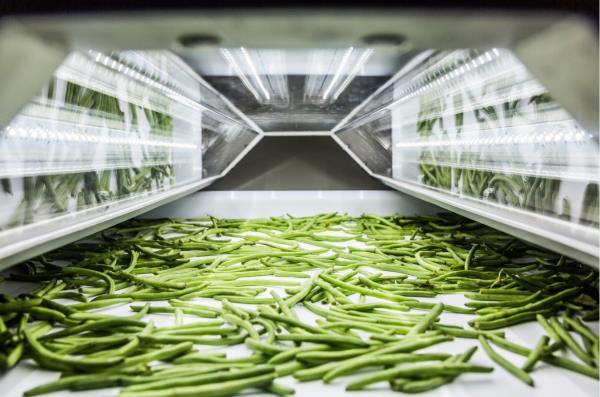How vegetable processors can achieve quality, sustainability, speed, profitability and safety at the same time
VV
Perishable produce must be sorted and packed quickly to maximize its shelf life. However, the faster this is done, the less time will be for accurate sorting of large volumes of produce for food quality and safety.
Vegetable producers and packhouses consider that they need to prioritize some objectives over others since the need for speed at vegetable processing facilities can sometimes seem incompatible with their other operational and commercial goals. Some believe, for example, that they have to compensate for processing speed compared to produce quality. Others think they have to choose between making more profit and producing food more sustainably that increases cost. These perceptions are understandable, but they are also wrong because packhouses can have speed with quality and sustainability with profitability due to today’s state-of-the-art sorting and grading technologies.
The need for speed
The quality of fresh produce could be compromised if to make every business in the supply chain very slowly. Processors also face a problem that harvesting seasons are often very busy because of the time limit. Another problem is that many packhouses have difficulty hiring or retaining labor to do seasonal work.
These issues are very different, but they have the same solution - technology. Sorting, packing and grading machines meet all the objectives, even when those objectives seem incompatible.
The need to know
Information about where crop comes from or animal welfare, ingredients and nutrients, workers’ rights and fair trade interests not only retailers. More consumers want to know about these things also and they expect such detailed information to be readily available to them through the increasing digitalization of shopping.
In this matter, sorting machines can also provide a solution. TOMRA’s machines collect and store data. This facility is designed to facilitate traceability in the interests of food safety and allows self-learning machines to sort with even greater precision. The company does it for food producers by analyzing their individual production challenges and then optimizing their sorting machines accordingly.
The need for safety and sustainability
It is widely known that sorting machines provide minimum quality standards and it is less known that they allow selling lower-grade produce instead of wasting it. This increases profitability and sustainability. From a commercial and ethical point of view, it is a win-win.
In TOMRA they say that machines can do far more than many businesses realize and whether it is an installation for vegetable processors or processors for retailers, it is all about meeting customers’ needs even if that first seems impossible.
For further information about TOMRA Food, please visit the website.





